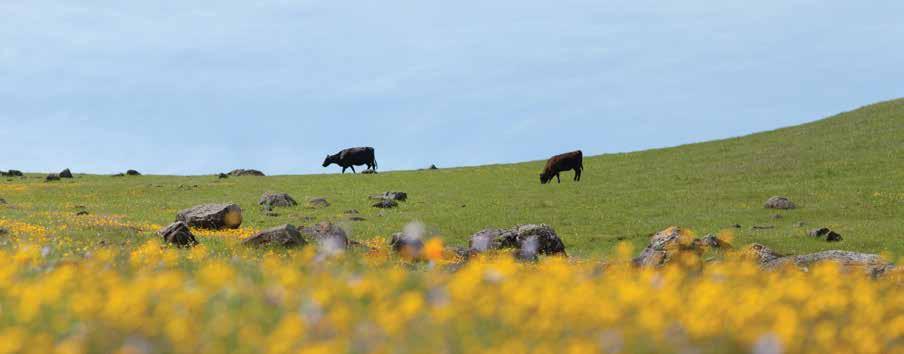BUILDING UPON A LEGACY OF SUCCESS Impact Report 2021–2022



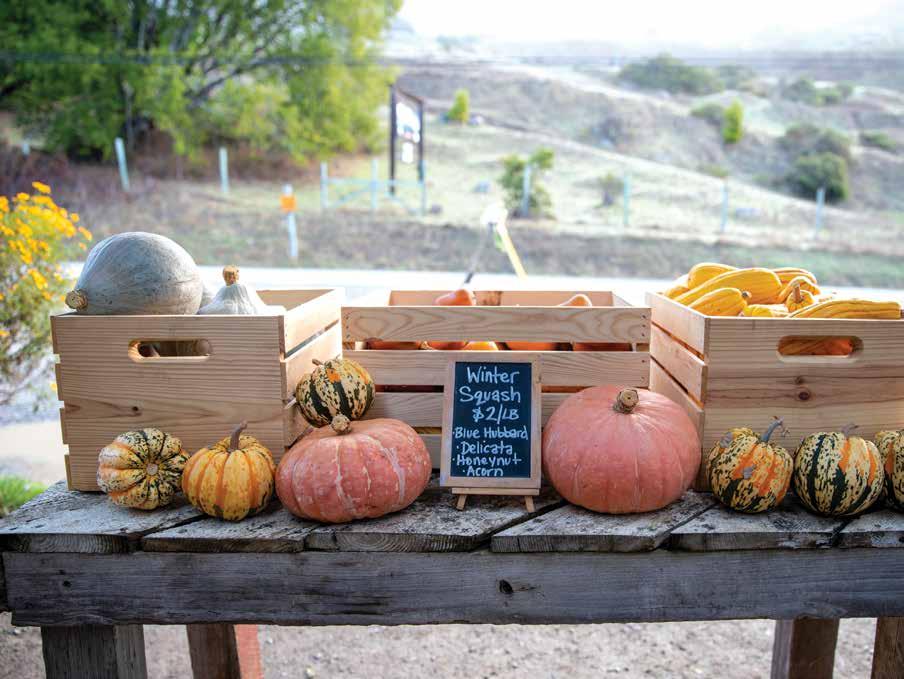
Dear Friend,
It’s comforting to us that no matter how many times we’ve driven to Point Reyes Station and out to ranches and farms in West Marin, we still find awe in the beauty of this landscape—the fertile pastures, quaint farm stands and clear creeks. You are helping make MALT’s vision a reality and for that we’re forever grateful.
This past year we made tremendous progress in our efforts toward protecting and stewarding this landscape amid what has become the most intense drought in recorded history. With your help, during the 2021–22 fiscal year, we:
• Doubled down our efforts to build water resilience in the agricultural working lands of our community by allocating an additional $250,000 in funding for our Drought Resilience and Water Security (DRAWS) initiative, bringing the total to $750,000 for water security projects.
• Completed numerous projects under our Stewardship Assistance Program (SAP)—providing technical guidance and funding to improve soil and water quality, increase agricultural productivity, protect habitat and help Marin’s working farms and ranches become more resilient to the impacts of climate change.
• Supported the successful renewal of Measure A, a one-quarter of one-percent sales tax set aside to help fund parks, open spaces, fire prevention, land stewardship and farmland protection in Marin County. These funds have already helped us protect McDowell Ranch.
With each passing year we further build upon our legacy of success, our community collaborations and a growing network of protected lands. As we welcome our new Executive Director, Lily Verdone, and incoming Board Chair, Tamara Hicks, we know that with your ongoing support there is so much opportunity in our future.
Sincerely,
Robert McGee, Outgoing Chair, Board of Directors
 Maude Carlin, Deputy Director
Jennifer
Maude Carlin, Deputy Director
Jennifer
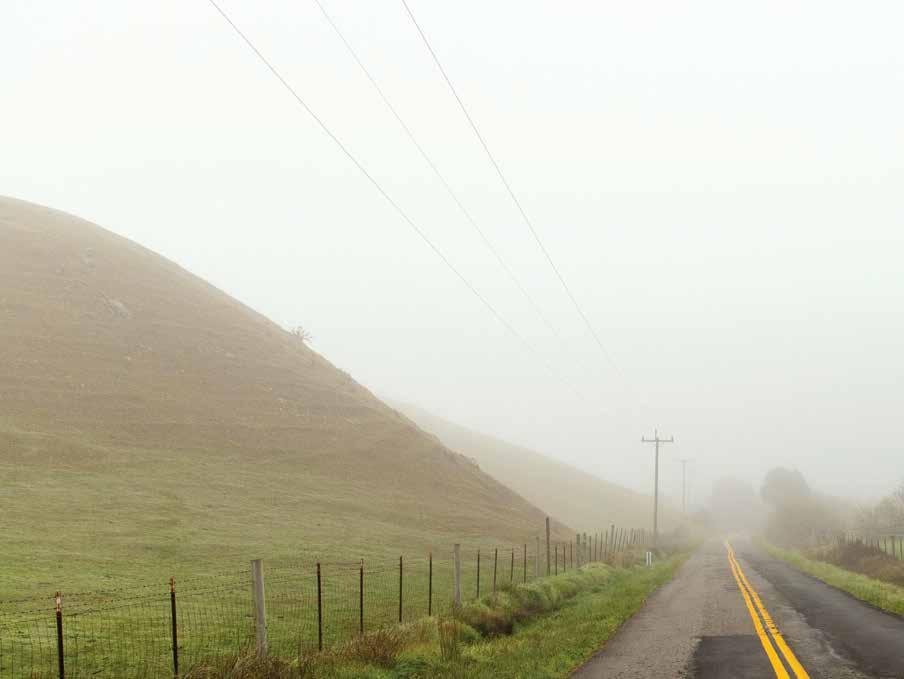
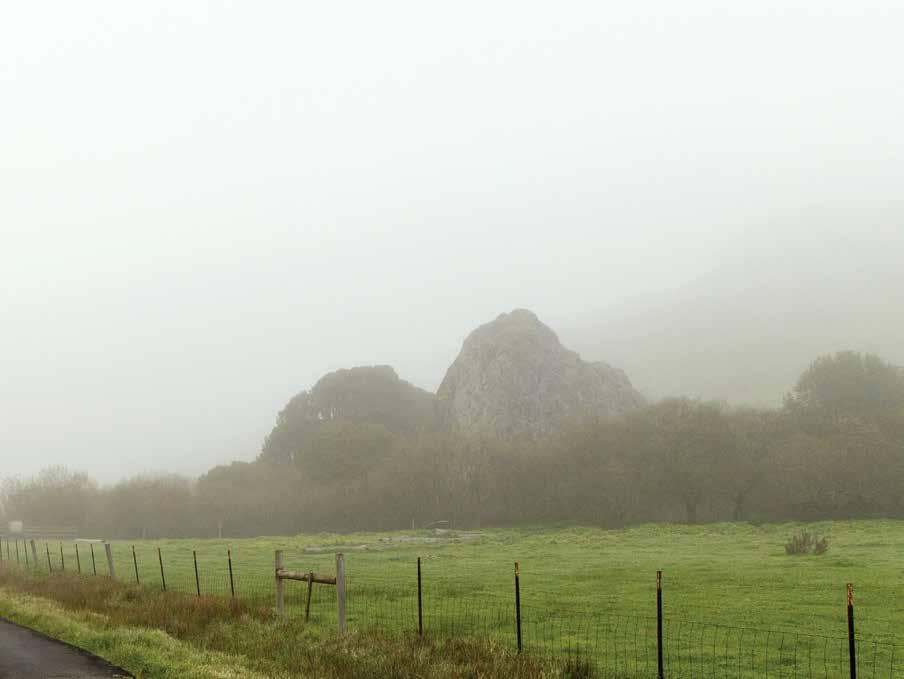

In June of this year, Marin County voters overwhelmingly supported the continuation of Measure A—one-quarter of one-percent sales tax for parks, open spaces, wildfire prevention, land stewardship and farmland protection in Marin County. For that immense support, we at MALT and our partners are truly grateful.

Since its passage in 2012, MALT has leveraged more than $15 million in Measure A funding to acquire agricultural conservation easements on 12 farms and ranches, totaling 7,414 acres, including the recently protected McDowell Ranch. Through the extraordinary efficiency of MALT’s public-private funding model, tax-deductible contributions are often matched 1:1 with these public funds, doubling the impact of MALT’s privately raised revenue.
It’s heartening that so many people in Marin continue to believe in protecting our local landscapes, and we are humbled to collaborate with community partners to ensure that protection for the benefit of all residents. We see these as critical investments in our local agricultural economy, ecological resilience and community well-being. Thank you for your continued support in realizing this collective win for local land conservation.
Learn more about our latest land protection efforts with support from Measure A: malt.org/measure-a
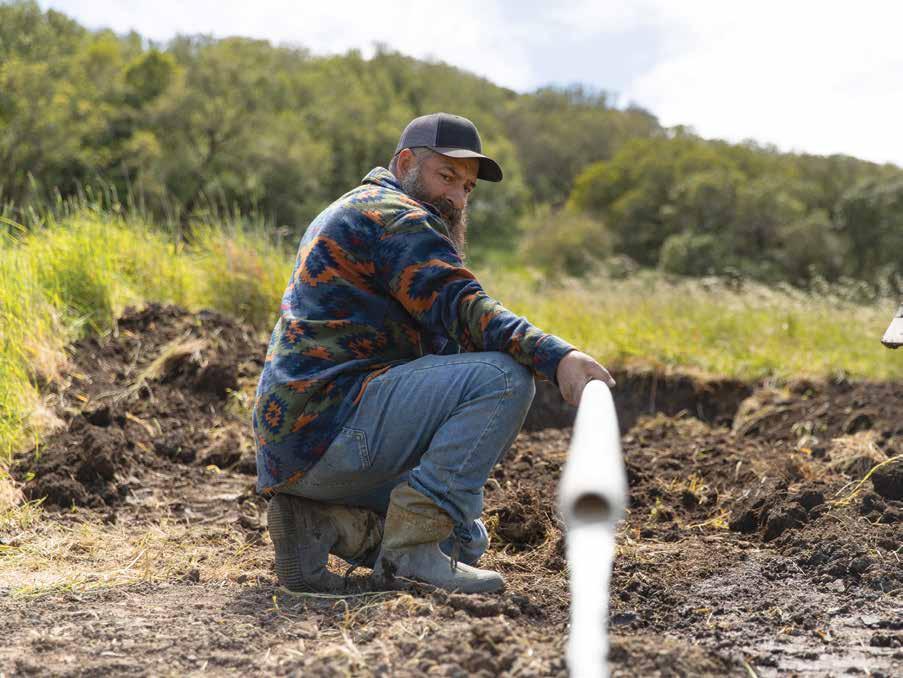

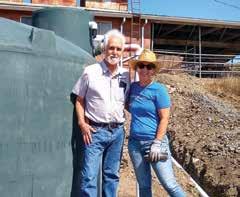
Farmers and ranchers across the western United States continue to struggle amid the most intense drought in recorded history—the driest period in at least 1,200 years. Many Northern California cities have received only half to two-thirds their historic average precipitation in the last two years, the equivalent of losing an entire year of rainfall.
As ponds and wells run dry, many farmers and ranchers resort to hauling water for their operations, a particularly expensive endeavor this year, as the price of fuel continues to rise. Combined with supply chain shortages, the rising cost of hay and labor shortages, it is an incredibly difficult time to be producing food and fiber here in Marin County and across much of the western United States.
In response to this crisis, we launched our Drought Resilience and Water Security (DRAWS) initiative in April of 2021 to help Marin County farms and ranches cope with the increasingly dire conditions. Through this initiative, all agricultural operators in Marin County are eligible for grants of up to $15,000 to design and implement long-term water infrastructure projects. It’s the timely investments they’ve needed to weather yet another unprecedented crisis.
“Last year our ranch went completely dry. Storage ponds dried up. Wells dried up. We were completely reliant on trucked-in water. Thanks to DRAWS, we installed a rain catchment system and a new 5,000-gallon storage tank. This has been a game changer for us. Thanks!”
–Linda Righetti Judah (Lazy R Ranch)This past year, after another unusual winter, we doubled down on these efforts and allocated an additional $250,000 in funding to have even more impact—bringing the total to $750,000 in DRAWS funding since the spring of 2021. Through new water catchment and storage systems as well as improvements in existing springs, we have helped leverage the existing water resources available to our local producers. It’s clear these small investments have had a game-changing effect on many of their operations.
“Life on a ranch is a good life with many challenges: drought, fences and invasive plants. With the help of the DRAWS/SAP programs, we have been able to complete many projects on the land. The financial aid is very helpful.”
 –Nancy Chaffin (Leiss Ranch)
–Nancy Chaffin (Leiss Ranch)
“I’m incredibly grateful for all of MALT’s support over the years. Their ability to act quick and help us get set up with extended piping and a new water tank location was a huge help this year and allowed us to increase water distribution and grazing activity around the ranch. This is the infrastructure we depend upon.”
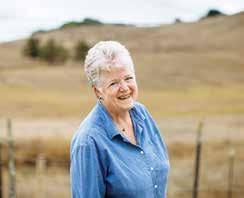 –Mike Giammona (Millerton Creek Ranch)
–Mike Giammona (Millerton Creek Ranch)
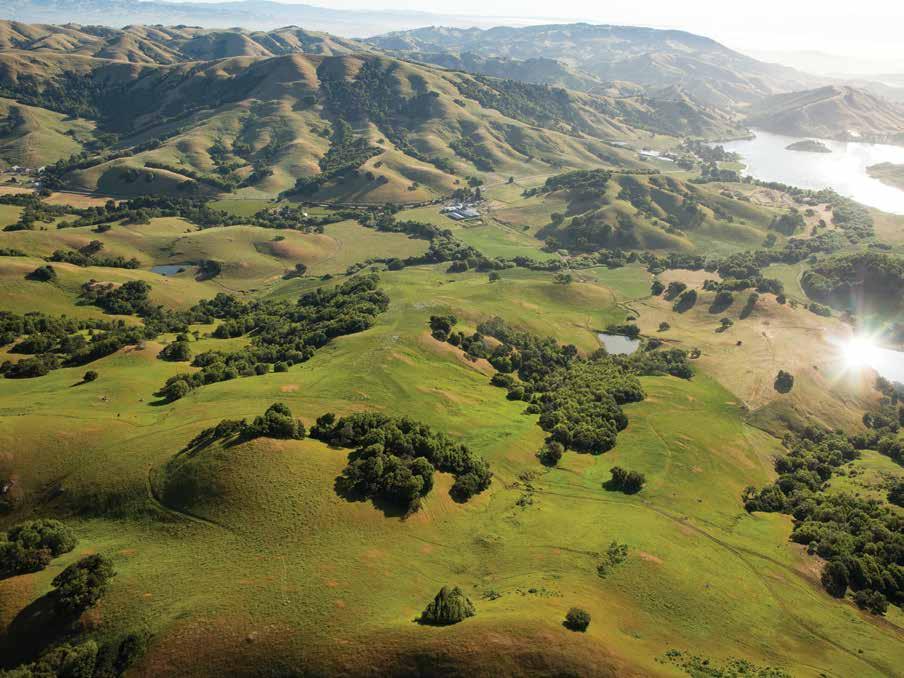
Flying over Marin County today, it’s heartening to see a landscape that still looks much as it has for decades—a contiguous expanse of open spaces made possible through a matrix of protected farms and ranches. Beyond the natural beauty, this interconnected landscape provides the backbone for our region’s ecological resilience.
Large areas of protected habitat are vital for all life moving within, across and past their boundaries. This is especially true as climate change forces plants and animals to migrate and adapt to our rapidly changing conditions. There has never been a more important time for conserving large tracts of open spaces.

Since our founding in 1980, we have made tremendous progress at protecting this vital network of ranch and farmland from the threat of development. Like pieces of a great puzzle, each piece builds upon a collective whole. This legacy of conservation and ecological resilience is only possible through the generous support of our donors.
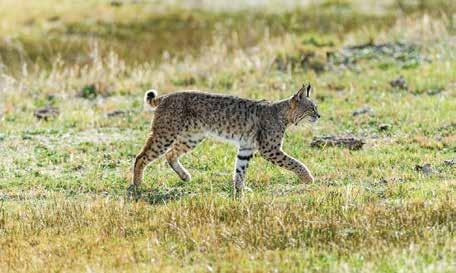
We live in one of the most naturally biodiverse regions in the world—a place that is teeming with life. In order to protect this diversity, we need to conserve and enhance the landscapes that are vital to our regional health.
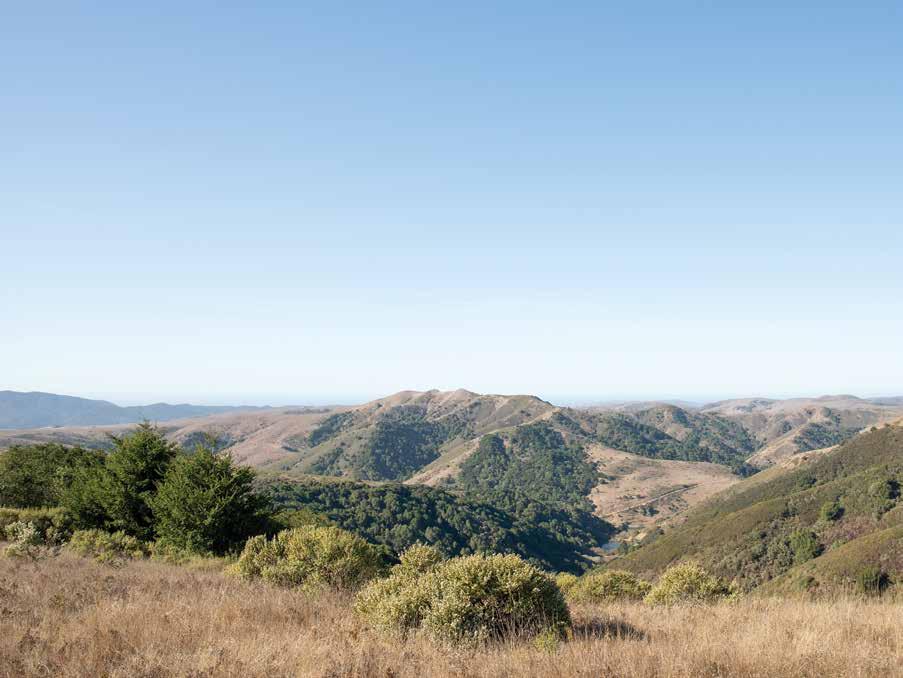
From all of us at MALT, we want to share our heartfelt gratitude for your continued support. You make it possible to protect this incredible landscape and preserve West Marin’s agricultural community and promote local food. We truly couldn’t do it without you.
A complete list of all those who contributed $250 or more to MALT’s success this past year can be found online at: malt.org/2022-supporters
Marin Agricultural Land Trust is a nonprofit organization created in 1980 to protect and steward Marin County farmland. Some of the Bay Area’s most highly acclaimed meats, dairy products, fiber and organic crops are produced on farmland protected by MALT’s 92 agricultural conservation easements, totaling more than 55,000 acres.
To learn about Marin’s working farms and ranches and the food they produce, visit malt.org

The MALT Impact Report is published by Marin Agricultural Land Trust, a nonprofit tax-exempt organization.
Editor: Matt Dolkas
Graphic Design: shirleycreative.com
Printer: ThirdBay Letterpress Inc.
Photos: malt.org/photo-credits
Printed on recycled paper containing soy inks
